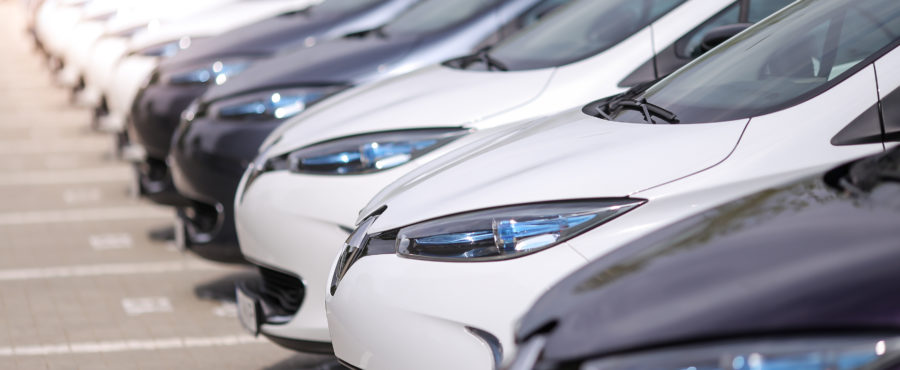
The government is launching a program to subsidise electric car purchases, first targeting retail buyers. They may be compensated up to 30 per cent of the price of an electric car, but the price cap is 125,000 PLN. During the second stage of the program, such bonuses may be granted also to car fleet companies. Forecasts of the Polish Alternative Fuels Association (PSPA) and Frost & Sullivan indicate that if the pool of the funds allocated to this purpose from the Low-Emission Transport Fund is used optimally, in 2025 the fleet of electric cars in Poland will reach 300,000. Experts stress that governmental incentives are the key factor driving the development of the electromobility market.
“The Polish market of electric cars is developing very rapidly. People in Poland understand the importance of conversion to electric vehicles. However, to motivate them to make that change, we need incentives as electric vehicles are more costly and also charging remains an issue. This is something that governments all over Europe, including Poland, understand and offer a number of minor and major incentives to encourage choosing electric vehicles,” Baudouin Denis, CEO of BMW Group Poland, told Newseria agency.
“The number of Poles considering the purchase of an electric vehicle increases every year. Last year 17 per cent of Polish drivers declared to be considering such a decision (versus 12.4 per cent the year before),” says the “Electromobility Barometer 2018” report. Another factor revealing a widespread interest of the Polish people in modern auto technologies is the popularity of traditional hybrid cars (28 per cent), which may pass for a substitute for electric vehicles,” indicates PSPA.
“Poles like such innovations also in the motor sector and they are ready to drive lower emission vehicles. This is a step-by-step process – still very few electric vehicles are purchased by Polish households. This year will close with a number of about 10 thousand sold cars. This is a small fraction of 18 million cars driven in Poland today, but on the other hand, this number is many times bigger than the figures two years ago. What motor companies will present within the next two years and the state support will translate into thousands of cars registered each year,” anticipates Maciej Mazur PSPA Managing Director.
According to the “Electromobility Meter” there were 6,672 electric engine cars driven on the Polish roads at the end of August 2019. From January to August a total of 2,416 fully electric cars and plug-in hybrids were registered in Poland, which is 89 per cent more than in the same period the year before. The growing number of vehicles is also bringing about the development of the charging infrastructure – at the end of August this year there were 888 active charging locations (1,611 stations).
“Looking at how electromobility develops all over the world, we see a correlation between initiatives of the state and the development of this business. This is also the case in Poland. Last year the government adopted the act on electromobility and alternative fuels. This year the Low-Emission Transport Fund is starting to operate and will offer to individuals, and also to business entities a year later, subsidies to electric cars. All this is to boost the development of this market,” says Maciej Mazur.
So far the biggest obstacle for the development of electromobility in Poland has been the lack of direct subsidies to e-cars. This was indicated by 60 per cent of organisations in a survey carried out by KPMG and PSPA early this year. However, on 19 November the government’s program to subsidise electric car purchases kicked off. First, only individual customers were eligible for this program and they may receive up to 30 per cent (max. 37,500 PLN) of subsidies when they purchase an electric vehicle, the total cost of which may not exceed 125,000 PLN.
Next year the program is also to cover car fleet management companies. The KPMG and PSPA’s survey shows that a half of companies are going to apply for solutions provided for in the government’s regulation on the Low-Emission Transport Fund. 44 per cent of those companies find subsidies or loans for electric car purchases the most attractive form of support.
“The key to success is to help customers make their decisions to replace their cars with electric ones. This is why the government’s incentives are so important. People are ready to make this effort if they receive proper support, because today for many people conversion from a combustion engine to an electric one is difficult, even if they are aware that this is a good choice. Another aspect is the electric car driving experience. If you try it once, you see that electric cars are quiet, offer lots of joy, magnificent acceleration and costs of maintenance and use are much lower, so the overall cost of having such a car is smaller. People who once went electric, never come back to combustion engine cars,” stresses Baudouin Denis.
The „Polish EV Outlook 2019” report of PSPA and Frost & Sullivan consulting company shows that, with an optimal use of subsidies from the Low-Emission Transport Fund Poland’s electric car fleet in 2025 will consist of 300,000 cars. Without this support, there would be about 60,000 cars on the Polish roads. Further, the government’s target of a million electric vehicles is reachable five years later and with an additional support, such as temporary VAT waiver.




